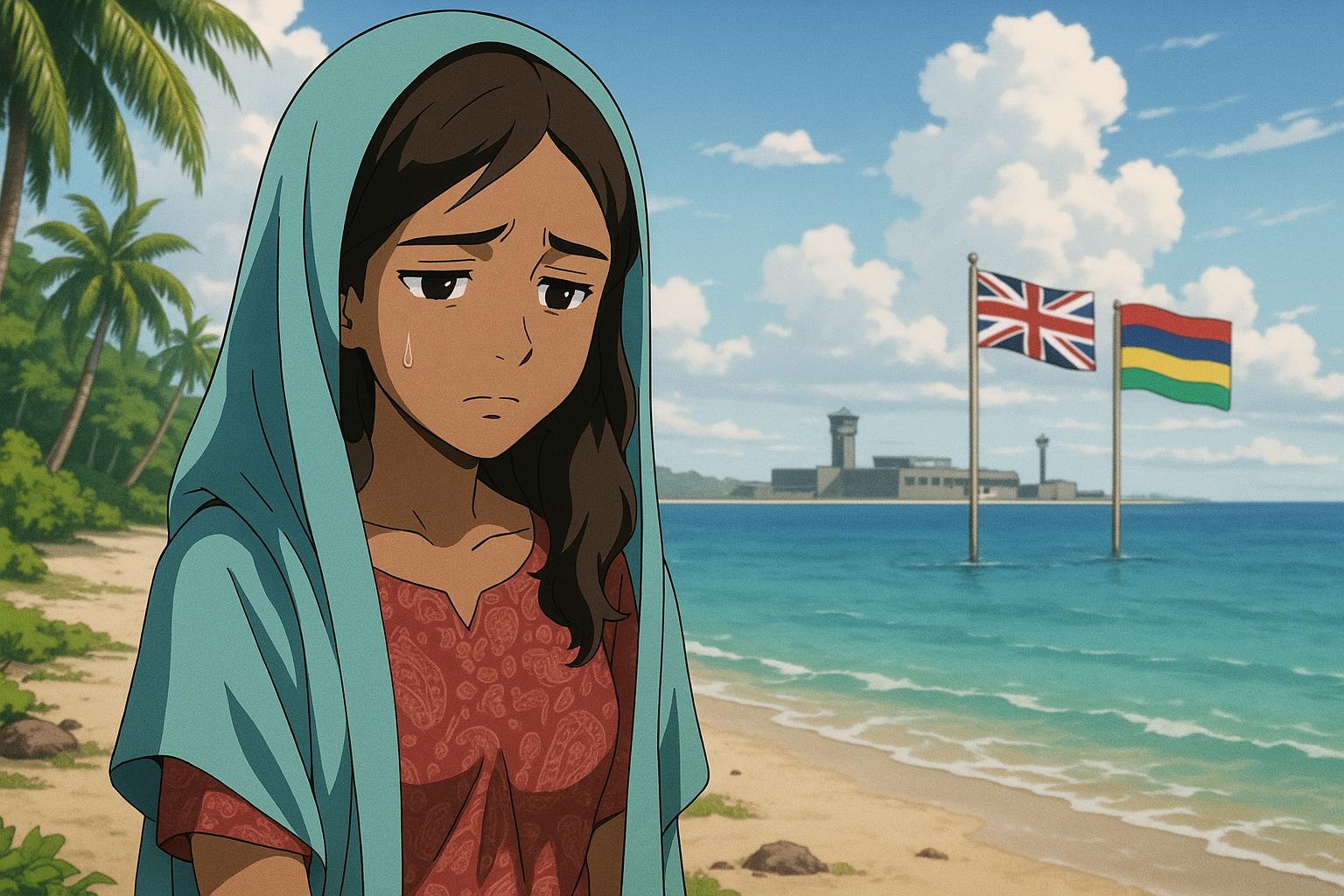The recent legal developments surrounding the Chagos Islands have sparked deep emotions and intensified debates over British colonial history and the future of its expatriate communities. Bertice Pompe, a British citizen born on the Chagos Islands, expressed profound sadness as an injunction that temporarily blocked a pivotal deal involving the territory was lifted. She described the day as "very, very sad," lamenting that the rights of her people have been overlooked by a government that claims to represent them. This deal was set to shift sovereignty of the Chagos Islands to Mauritius while retaining control over the strategically vital military base at Diego Garcia through a long-term lease.
Earlier this week, a High Court judge initially granted an injunction against the signing of the deal, following a legal challenge led by Pompe and another Chagossian, Bernadette Dugasse. However, the injunction was lifted shortly after, allowing the UK and Mauritius to proceed with the agreement. Pompe’s legal team has argued against the exclusion of the Chagossian voices from the negotiations, suggesting that such oversight perpetuates a pattern of neglect towards their community that dates back to the forced eviction of nearly 2,000 residents in the 1960s.
Critics of the deal, including members of the Chagossian community and various political figures, have voiced significant concerns. Michael Polak, the barrister representing Pompe and Dugasse, noted that the current government seems to have disregarded the well-being and opinions of Chagossians in its haste to conclude this agreement. He characterised the treatment of these individuals as "shameful," reflecting a broader historical injustice that needs recognition and redress.
The multi-billion-pound agreement, while celebrated by some for its potential to boost national security, particularly through joint military operations from Diego Garcia, remains contentious. Critics argue that it compromises the UK's position and fails to adequately address the rights of those displaced or their descendants. Misley Mandarin, a member of the BIOT Citizens group, articulated a common sentiment among Chagossians when he stated, "We will fight to the end… we will not let our island, a British island, go to Mauritius."
According to the terms of the agreement, the UK is expected to pay Mauritius approximately £101 million annually and retain control of Diego Garcia for at least 99 years. This site has played a pivotal role in numerous military operations and is regarded as crucial against rising global threats, particularly from the likes of China. The deal was defended by British Prime Minister Keir Starmer, who emphasised its significance in ensuring ongoing military preparedness in a rapidly changing world.
However, the backlash is palpable, especially given historical perspectives. The United Nations and the International Court of Justice previously ruled that the UK’s detachment of the islands from Mauritius in the 1960s was unlawful, highlighting international concerns surrounding the legitimacy of Britain's actions regarding the territory. This legal backdrop adds layers of complexity to the current situation, marking the Chagos Islands as not just a strategic asset but also a symbol of colonial legacy and its lingering effects on local populations.
While plans to engage in further legal challenges are imminent as Pompe and Dugasse prepare to take their case to the highest judicial levels, the broader political implications of the deal loom large. It poses critical questions for British citizens and their representatives in Parliament: How should the historical injustices faced by the Chagossian people be reconciled with contemporary political and strategic interests?
As the negotiations unfold, it remains crucial to consider not only the geopolitical stakes but also the human dimensions of this deeply contested narrative. The voices of the Chagossians serve as an urgent reminder that behind legal agreements lie real lives and histories, demanding recognition, respect, and, ultimately, justice.
Reference Map
- Paragraphs 1, 2, 3, 4, 5, 6, 7, 8.
- Paragraphs 2, 6, 7.
- Paragraphs 2, 5, 6.
- Paragraphs 2, 5, 6.
- Paragraphs 2, 5, 6.
- Paragraphs 6, 7.
- Paragraphs 6, 7.
Source: Noah Wire Services
